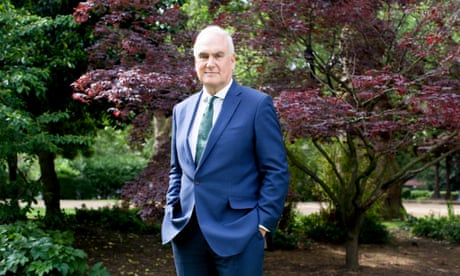Just 3,100 of the 117,000 pupils who currently attend grammar schools come from families poor enough to be eligible for free school meals.
----Also read
-----
The proportion of students (2.6%) is lower than previously reported, and was last night seized upon by critics of the government’s plans for more selection in the state system.
The average proportion of pupils entitled to free school meals in areas that currently select on academic ability is thought to be around 18%.
Lucy Powell, the former shadow education secretary, said the figures, compiled by the House of Commons library from Department for Education records from January this year, illustrated how selection was failing those from the least affluent backgrounds.
“Grammar schools have a shamefully low record when it comes to the number of children from poor backgrounds attending them,” said Powell.

Ofsted chief slams Theresa May’s ‘obsession’ with grammar schools
The government’s green paper on education reform proposes that existing grammar schools should be allowed to expand and new ones be allowed to open, while existing comprehensives could opt to be selective. It also proposes encouraging multi-academy trusts to select within their family of schools, in order to set up “centres of excellence” for their most able students.
But Powell said there were now 23 Tory MPs who supported her campaign to force a government U-turn on their plans to introduce more selection. “All the evidence shows that selective education creates barriers for disadvantaged children rather than breaking them down,” she said. “These figures tell the real story. A minuscule number of children on free school meals pass the 11-plus.
“That these tiny, tiny few do well is no measure. The measure should be how can we ensure that every child gets an excellent academic education.
“Rather than serving a privileged few, ministers should focus on tackling real disadvantage and ensure that all schools have enough teachers and resources to deliver a world class education for all – things that are in serious trouble right now.”
The government’s policy was nevertheless given a boost last week when new “value-added figures” suggested that the 163 grammar schools in England had better progress scores across all attainment levels than the other 2,800 state secondaries, achieving about a third of a GCSE grade higher than pupils with the same prior results at other schools. The new “Progress 8 measures” record pupils’ progress across eight subjects from age 11 to 16.
Education secretary Justine Greening said the statistics gave the government “even more reason to make more of these good school places available in more areas”.
Rebecca Allen, director of Education Datalab and an expert in the analysis of large scale administrative and survey datasets, warned that ministers should be cautious in latching on to “crude” performance tests. Allen said that the Key Stage 2 scores used to test the progress of pupils in the years up to their GCSEs was a poor indicator of academic potential, as indicated by the fact that many with low scores passed the 11-plus.
She said that it would be better to examine progress across the board in local authorities that are selective. Those results show a marginally positive set of results in terms of progress of all pupils.
However, Allen said that even then the potential of a cohort of pupils in areas where grammars exist may well be higher in the first place because pupils could have been drawn from outside the area, distorting any analysis on a local authority by local authority basis.
Allen added that the statistics also did not take into account the distorting effect on the figures produced by those who would have otherwise stayed in private education who have moved into state grammar schools where they are available.
“These calculations are made only for those in the state sector, yet the presence of grammar schools changes the type of pupils in private schools,” she said. “About 12 per cent of those in grammars were in the private sector at age 10 and may well have stayed there had state-selection not been available.
“Moreover, large numbers who fail the 11-plus exit the state sector for non-elite private schools. It is very hard to assess how these private sector transfers affect local authority Progress 8 figures, so we must be cautious before using crude performance table measures to make claims about policy effectiveness.”